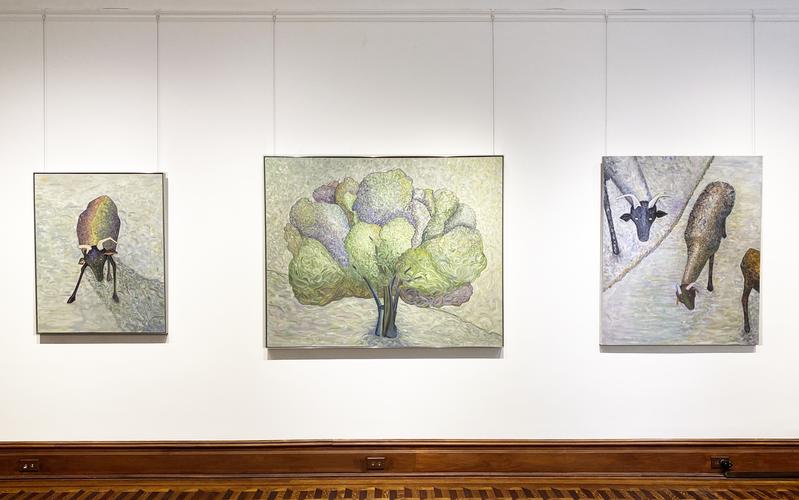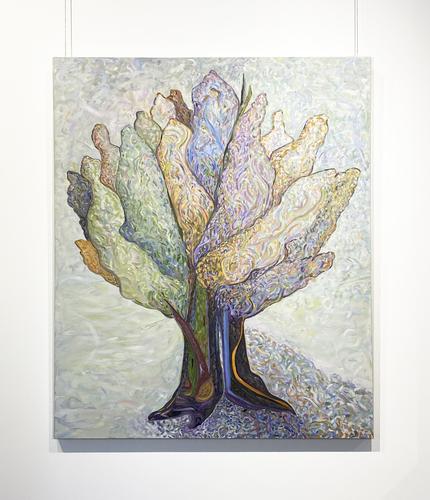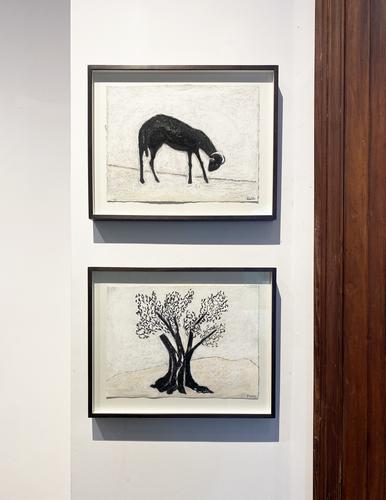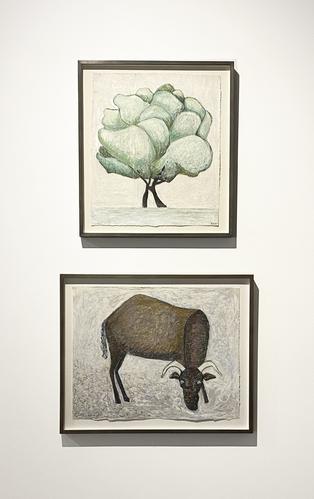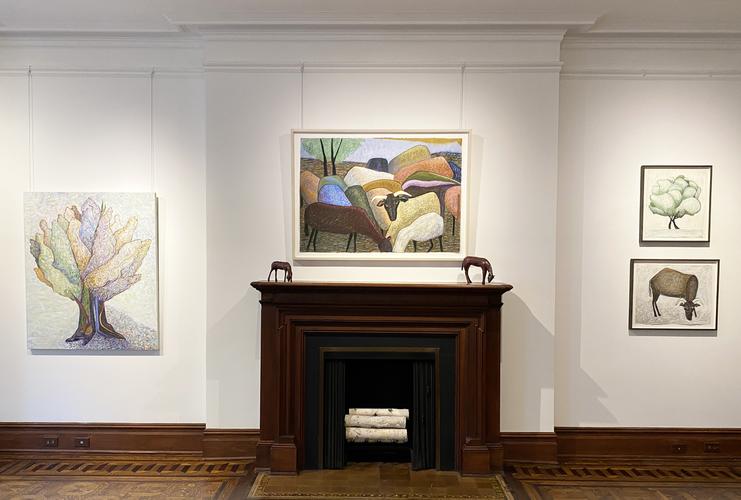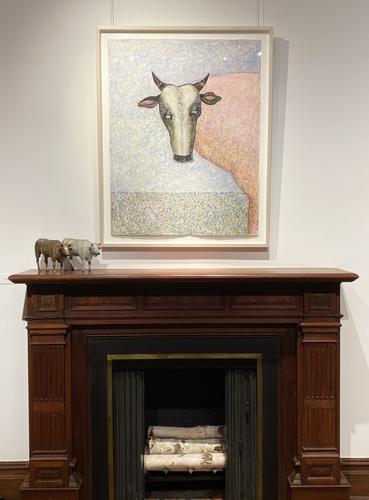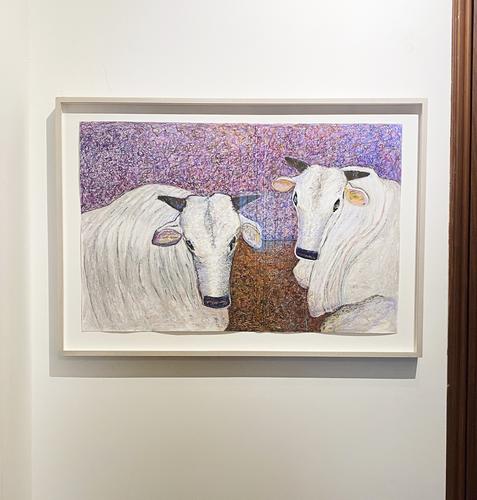Barbara Mathes Gallery is pleased to present Pastorale, an exhibition of new paintings, works on paper, and sculpture by Karen Wilberding Diefenbach. Inspired by the landscape of Tuscany, Diefenbach’s work is known for its evocation of tradition and its exploration of our complex interaction with the natural world.
Fascinated by what she has called the “determined survival” of the ancient trees in Tuscany and their silent witness to the events of history, Diefenbach has been interested in the cyclical changes of the seasons and the constant transformation of the natural environment. In her new paintings, such as Pastorale (2023) and Pastorale #2, Old Olive Tree (2023), Diefenbach’s large scale paintings of vibrant trees reflect this theme of temporality. Unending swirls of bright color form the towering branches of Diefenbach’s trees, conveying the strength and majesty that has endured for hundreds of years.
This exhibition also explores Diefenbach’s ongoing series of works focusing on the Pecore Massese – a unique breed of sheep originating in the Alpi Apuane – that she first encountered in the hills above the town of Camaiore. Diefenbach came to see the Massese sheep’s strange forms as a metaphor for ritual and historical continuity. Seemingly out of time, they graze on the ancient hills as they have for many centuries. Yet in recent years their population has rapidly declined. Diefenbach’s work thus takes on an elegiac tone, and her artistic meditations have come to evoke a place and a way of life that is increasingly under threat.
Il Gregge (The Flock) (2023) exemplifies the formal simplicity with which Diefenbach approaches her subject. Exploring the inherent seriality of nature, she renders a flock of sheep with a linear geometry and an expressive palette. In San Macario #1, Three Pecore (2023) individual animals look out at us, their wide-eyed gaze meeting ours. With a flattened perspective and a dappled, abstract application of paint, San Macario #1, Three Pecore captures both the familiarity and the uncanniness of the ancient animals.
Alongside the Massese sheep, Diefenbach has recently begun to depict the large white Chianina cattle –considered one of the oldest cattle breeds in the world –which provide a similar living connection to history. With an attention to form and a sensitive handling of material, Diefenbach’s depictions of the animals and landscape of Italy contemplate our relationship to ritual and form a meditation on nature and place.

